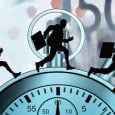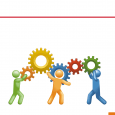
Agency recruiters must constantly adapt to remain competitive and successful in the recruitment industry. Artificial Intelligence is already a driving force in screening candidates. Even though human judgment is still very important, AI screening tools are now a must for businesses that want to grow for the long term. In the blog, we will bypass the buzzwords to explore industry-leading AI screening tools that are shaping recruitment practices in 2025. We will learn about AI screening tools, their advantages, and how to select one. Each of these tools can help you choose better candidates and give recruitment agencies a competitive edge they need to succeed in the changing job market.
What Is An AI Screening Tool?
Recruiters use AI screening tools to manage a large number of resumes. It is the practice of screening candidates using AI. Speed and volume are the primary distinctions between AI screening and manual screening. With AI screening, the same recruiter can easily screen 10X more candidates without burning out. An AI screening tool uses artificial intelligence as a way to make candidate evaluation both faster and easier to manage.
Recruiters no longer have to sift through every single application. Instead, they can concentrate on the strongest candidates. By applying the same criteria to every applicant, these tools can encourage more fairness in hiring, though their effectiveness depends on how they are programmed.
The following are some important details about what they provide: Automated Analysis of Data AI systems can quickly scan applications, resumes, and massive datasets. They match selected requirements to important details. Reduction of Bias Good systems try to cut down on unconscious bias by sticking to relevant skills, qualifications, or responses.
Filters That Can Be Modified You control filters like necessary skills, experience, or specific keywords. This ensures that the best matches will continue.
Insights and Reporting
Many AI screening tools deliver useful reports and metrics to help hiring teams review trends and make better decisions next time.
Below are some well-known examples of AI screening tools:
Recruiterflow uses artificial intelligence to screen and rank candidates based on their skills, experience, and suitability. HireVue uses AI to evaluate skills by reviewing expressions, voice tone, and speech content in video interviews. Pymetrics: Uses neuroscience-driven games paired with AI to match candidates to roles using emotional and cognitive data.
X0PA AI: AI offers impartial recommendations while assisting in the automation of candidate sourcing, screening, and shortlisting processes. Although these tools simplify many tasks, they are not an ideal solution. The training data for AI screening are critical. If the input has bias, the output might reflect it as well. As a result, a lot of businesses combine these tools with human evaluations to combine the advantages of both methods. Why Use AI-Based Screening Software in 2025? In the hiring processes of 2025, AI screening tools will play a significant role. Customers anticipate closures immediately, margins are decreasing, and competition is getting tougher. AI can assist recruitment agencies in managing an avalanche of job applications by managing expectations without disrupting procedures.
1. Rapid Growth and Better Returns
Enhancements in Efficiency After incorporating AI screening systems into their hiring process, recruiters notice a 30% reduction in the cost-per-hire and a 25% reduction in the time it takes to fill positions. Reduced Travel Time AI cuts back on administrative work. For instance, it reduces average hiring times from 44 days to as short as 11 days. Additionally, screening costs are reduced by up to 75%. Enhancing Efficiency Utilizing AI-powered hiring procedures has been associated with productivity gains of more than 20% and, in some instances, more than 30%.
2. Market Pressures (Skip AI and Risk Lagging Behind)
By 2025, 70% of businesses will use AI to hire workers. Around 82% will depend on AI to sift through résumés, while 64% will use it to review candidate assessments. 98% of hiring managers are of the opinion that AI has simplified screening, scheduling, and assessment processes.
3. Efficiency and Equality
Improved Matching of Candidates Contextual analysis is now more robustly performed by AI tools. They help match candidates’ abilities and experience with job roles better.
Over 54% of businesses using AI say it matches more accurately. This improves revenue per employee by 4% and lessens turnover by 35%.



